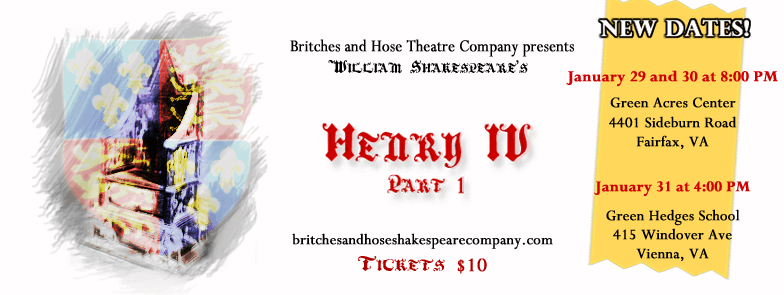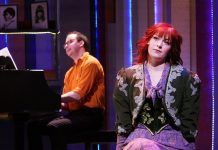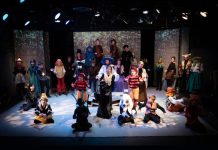In our interview with the cast of Britches and Hose Shakespeare Company’s gender-blind production of Henry IV, Part 1, meet Dave Joria (Prince Hal), Sarah Pfanz (Hotspur), Stephanie Ramsey (King Henry) and Jay Tilley (Falstaff).
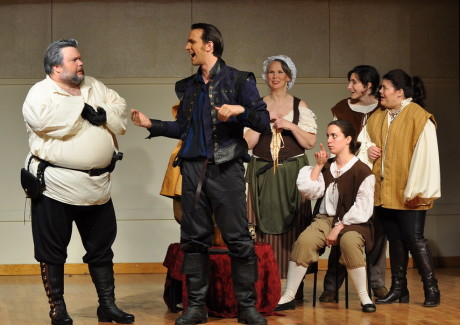
Joel: Please introduce yourself and tell our readers where they may have seen you perform on our local stages. What shows and roles you have played?

Dave: My name is Dave Joria, and most of my recent performances have also been with B&H. Before that, I worked multiple times with The Maryland Renaissance Festival and Now This! Improv troupe. I also had the pleasure of performing as Zoltan Karpathy in Signature Theatre’s My Fair Lady and Secretary Thompson in Olney’s production of 1776, though that was a few years ago.
Sarah: My name is Sarah Pfanz and I’ve been primarily with B&H since I moved to the DC area three years ago. We most recently performed Edward II, in which I played Young Mortimer. I also had the great privilege of playing Christopher in On the Razzle with Silver Spring Stage this past summer.
Stephanie: My name is Stephanie Ramsey and my recent credits are also from B&H as an actor and assistant director. Other regional credits include Horn in the West (Nancy Ward), Pride and Prejudice (Mary/Charlotte) and The Complete Works of William Shakespeare Abridged (Daniel).
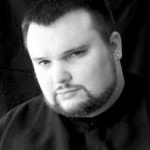
Jay: My name is Jay Tilley and I have been acting in the DC area theatre scene for nearly 17 years now. I believe I’ve appeared in over 80 productions to this point, ranging from light operas and musicals to contemporary dramas and comedies to classical theatre, including Shakespeare. I’ve dabbled in some local TV, film and voice over work and have appeared at The Maryland Renaissance Festival as well. I currently appear in the web series Shotgun Mythos and occasionally do improv with ComedySportz and The Blue Show in DC as well as with a troupe called The StageCoach Bandits.
Have you performed in a Shakespearean production and/or Henry IV, Part 1 before? If yes, where and who did you play?
Dave: I had the pleasure of being Oberon in B&H’s A Midsummer’s Night Dream, Dogberry at The Maryland Renaissance Festival’s Much Ado About Nothing and Caliban in The Pennsylvania Renaissance Faire’s The Tempest; as you can see, I normally end up playing the inhuman or unhinged characters in Shakespeare! As for Henry IV, I performed a small scene of it for the Maryland Shakespeare Festival; I also taught it last year to my high school drama class (as part of Shakespeare Theatre’s “Text Alive!” program).
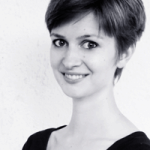
Sarah: I’ve done more Shakespeare than I have prose plays, actually! I was heavily involved with Bryn Mawr’s Shakespeare Performance Troupe during undergrad, and did As You Like It (Audrey), The Taming of the Shrew (Tranio), and The Merchant of Venice (Launcelot) with them. With B&H, I’ve played the Clown in The Winter’s Tale and Snout (who doth present a Wall) in A Midsummer Night’s Dream on the comedic side of the spectrum, and Macbeth (Macbeth) and Cassius (Julius Caesar) on the more, ah, murderous side.
Stephanie: This is my first time performing in Henry IV Part 1, although I had a grand time in 2014 as the Shakespeare Theatre Company’s Education Intern teaching and directing students in a scene from Henry for the Text Alive! program. I was most recently involved in A Midsummer Night’s Dream (Lysander) and Julius Caesar (Cinna the Poet / Assistant Director). In college, I had the chance to play one of my bucket list characters, Viola in Twelfth Night, and I am looking forward to directing another favorite Shakespeare quite soon!
Jay: This is my first time performing in Henry IV, Part 1, but I have played Falstaff before in The Merry Wives of Windsor with a group called Vpstart Crow in Manassas, VA. My most recent production last October was also a Shakespeare play. I had the pleasure of playing Brutus in Julius Caesar with Prince William Little Theatre. With Vpstart Crow, I also appeared in Romeo and Juliet (Friar Laurence), The Taming of the Shrew (Petruchio), Julius Caesar (Brutus) and The Merchant of Venice (Shylock). In addition, I’ve appeared in Hamlet twice – first as Polonius with Grain of Sand Theatre in an abridged version called Hamlet: Reframed for the Capital Fringe Festival and, second, as Guildenstern at The Maryland Renaissance Festival. I also appeared in Richard III (Buckingham) with Tapestry Theatre Company, As You Like It (Touchstone) with the Reston Community Players and in The Comedy of Errors (Jailer) at the Maryland Renaissance Festival.
Who do you play in this production and how do you relate and not relate to your character?
Dave: I play the rascally Prince Hal. I can definitely relate with Hal’s curious nature; he loves meeting new people and seeing what makes them tick. I’m a bit of a romantic, and I think Hal is too; he sees the world through stories and proverbs. He even plots out his own character arc!
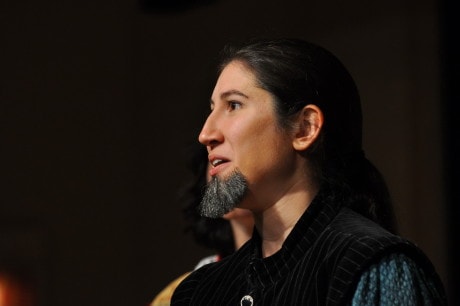
Sarah: I play Harry Percy the Younger, better known as Hotspur. Like me, Hotspur is loud, excitable and never shuts up! He’s also fiercely protective of his loved ones – most of his rants are brought on by what he perceives as an insult to his friends or family. What I thankfully don’t share are Hotspur’s impulsivity and lack of filter, or his worrisome enthusiasm for battle. And I like to think I’m smarter than he is. His nickname comes from his readiness to go charging forward, which is courageous … but not especially bright.

Stephanie: I have the joy of playing King Henry in this production. He is a man haunted by past sins and striving to make good on them. He takes on the guilt of King Richard’s death and attempts a crusade to redeem himself. He later takes responsibility for the poor behavior of his son and administers Prince Hal the world’s most intense wake-up call. This desire to make things better after a previous mistake is something I easily connect with; while I would not literally attempt a crusade, there is little I wouldn’t do in pursuit of atonement. Regarding Hal and Henry’s relationship – although I do not have a child of my own – as a teacher, I keenly relate to the frustrations of seeing a brilliant young person who is failing to live up to their potential. While this character is certainly more rigid and serious than I am, I still find him utterly relatable.
Jay: I play Sir John Falstaff. Like Falstaff, I’m definitely large and I believe I’m also full of life, outgoing, the life or the party and generally well-liked despite my flaws. And while I’m probably guilty of being lazy like Falstaff at times, I certainly do not lie, cheat, steal or go out of my way to insult people! Falstaff also tends to be a coward and has no problem throwing his friends under the bus. I’m no fighter by any stretch of the imagination, but I would like to think I would defend myself and my friends and family the best that I could if the situation warranted it. Falstaff also does not typically react well to being the butt of the joke, whereas I realize that you shouldn’t dish it out if you can’t take it!
What is the play about from the point of view of your character?
Dave: When you look at the play through Hal, I think it’s about balance. He’s surrounded by so many extremes: Falstaff’s sloth and Hotspur’s ambition; the low-class thieves and the Royal Court. It would be easy for him to be complacent in his world view and think that he’s right and everyone else is wrong, but he doesn’t; he spends his time learning how others see the world and finding the middle ground. He learns to bend while those around him break.
Sarah: According to Hotspur, this is a play about righting a wrong. Hotspur’s family helped Henry Bolingbroke unseat the preceding king, Richard II. Hotspur feels that Henry achieved his power under false pretenses and has mistreated Hotspur’s family. Hotspur isn’t trying to take power for himself; he genuinely believes that the rebellion is justified and destined to succeed. As he himself says, “It cannot choose but be a noble plot!” And his faith in his family and his cause is so strong that it never occurs to him that others in his faction might not share his motivations.
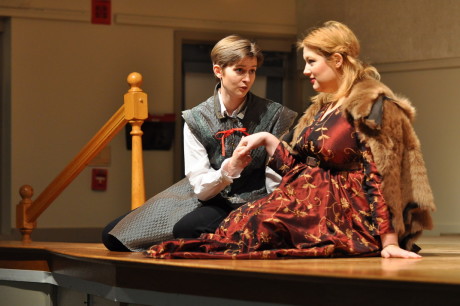
Stephanie: This is a play about fathers and sons. Henry is simultaneously frustrated by how similar and how different his son is. When he was younger, Henry allowed his passions to get himself banished and later used his people skills to rise to the throne. While Hal follows his own passions and demonstrates these incredible interpersonal skills in the bar, he isn’t using them in a way that befits his rank (according to Henry). The disappointment that Henry feels is doubled when he compares Hal to Hotspur, who is directly emulating Henry’s own ascent to the throne. The desire to pass the torch to the next generation preoccupies Henry’s mind; England is fitful, and he desperately wants his son to grow up and carry the country to peace.
Jay: To me, from Falstaff’s point of view, this is about his overarching goal to keep Hal around as long as possible. He knows Hal will eventually have to leave because of his princely duties, but he wants Hal to be a part of life as long as he can, not only because he loves him and loves sparring with him but because he sees his pre-tavern life in Hal. In the backstory I created for Falstaff, he was once a noble, virtuous knight. Deep down, Hal inspires Falstaff to be the young man he used to be. It’s funny because Falstaff is kind of at war with himself with Hal. On the one hand, he would love to keep Hal around and “corrupt” him. But on the other hand, Hal could help Falstaff become that young, noble man again. That’s something that Falstaff wants deep down as much as he loves living and wants to continue to live “the good life.”
How did you prepare for your role?
Sarah: “Strident man carrying sharp pointed object” is sort of a typecast of mine, so my main objective was differentiating Hotspur from other characters I’ve played. Mostly this involved rereading the play closely – not just his own lines, but lines spoken about him – to figure out his personality tics and what motivated him. I also checked out the relevant sections from some of Shakespeare’s other histories. The big thing I latched onto is that Hotspur is incapable of guile. He’s painfully earnest in all senses of the word, so I ran with that.
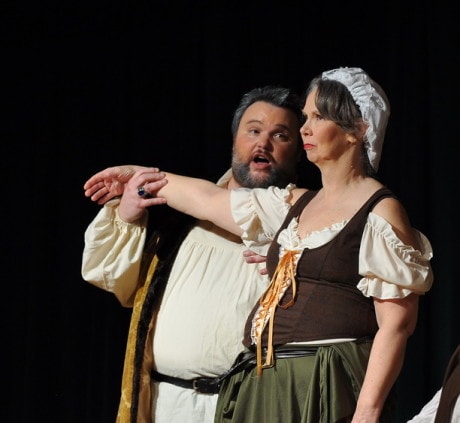
Jay: Having previously played Falstaff before in The Merry Wives of Windsor, I was already familiar with the character, but, of course, this is a whole new story with different lines and different goals, motivations and relationships. Learning and understanding all of Falstaff’s lines as quickly as possible was vital, but before I even started memorizing anything, I created a backstory for Falstaff since he is a fictional character. That then helped me to map out his overarching goal and immediate goals for each scene as well as his emotions for each situation and how he relates to all of the characters in the play, especially Hal. I have to say that our Director, Arielle Seidman, and our Assistant Director, Leandra Lynn, were extremely helpful in helping me prepare to play Falstaff again. I can’t say enough about my cast mates being so fun and easy to work with as well.
Dave: Well, I already spent a semester trying to teach it to a class of squirming freshmen – after that, it’s all downhill! Memorization really was the hardest part – most of the time, I record the lines and play them off my iPod while driving.
Stephanie: I read through Richard II and reread Henry IV part 2 to get a clear picture of Henry’s entire character arc. By focusing on who my character was and how he changes from start to finish, I noticed how his idealism slowly turns to paranoia. I also spent a while deciding what was going on with Henry and Hal’s relationship – Hal gets one brief mention in Richard II, which is both disapproving and hopeful. Apparently, he spent the entirety of Henry’s ascension running around at various taverns, and while this is less than ideal, Henry still notes “some sparks of better hope, which elder years / May happily bring forth” (V.iii.21-22) in his son. This tells me that Henry desperately wants his son to prove him wrong, even as he insults his behavior.
What scene did you find the most challenging to perform, and why?
Dave: Act V is pretty rough for me, mostly because I have two back-to-back eulogy soliloquies. The hardest part of any scene for me is any time when I’m in the scene when Jay and his band are onstage – it’s damn hard not laughing in the wings!
Sarah: Oh, jeez. Everything surrounding my big duel in Act V. I am notoriously bad at safe stage combat, and conveying exhaustion without sounding like I just rolled in from a bad action movie was more difficult than I thought it would be.
Stephanie: Definitely Act 3, Scene 2. It feels like one, gigantic monologue right up until the end. Henry finally gets the chance to tell Hal exactly how he feels, and he does not hold back … it is phenomenally rich writing, but by the end I am exhausted!
Jay: Without a doubt, Act 2, Scene 4! It is a long scene and roughly a 1/3 of my lines are in that scene alone. But while that scene is the most challenging, I think it’s my favorite now. It’s a fun, rollicking scene where tomfoolery abounds!
Shakespeare’s histories are based on real-life people and events, and many of the plays are interconnected. Did that impact how you approached your roles?
Dave: Most of what I know about Hal’s history I learned from Sarah (she’s B&H’s unofficial dramaturg). I’m familiar with Henry IV Part 2 and Henry V, but I didn’t dig into those too deeply. Hal will definitely grow into greatness, but I didn’t want to dwell on his later glories; he’s still young and making lots of rookie mistakes.
Sarah: Shakespeare’s Hotspur is much younger than the real-life Hotspur was at the Battle of Shrewsbury, so I couldn’t incorporate too many of Hotspur’s real-life exploits into his backstory. More helpful to me was reading Richard II, where a younger version of Hotspur tags along with his father as he supports Henry Bolingbroke’s suit against Richard. He doesn’t have much influence in that play, but the adult Hotspur often references the events he witnessed.
Stephanie: I did some background reading to make sure I understood the roots of the conflict between Henry & Richard and Henry & Hotspur. While it was helpful to clarify who some of the characters were as far as relationships are concerned, I leaned much more heavily upon Shakespeare’s texts for character information
Jay: Falstaff is a fictional character, but I still found it very helpful to create a backstory for him and to familiarize myself with the history that Henry IV, Part 1 is based on. This helped me understand who the historical characters were and how Falstaff should relate to them.
This production features several actors whose gender and/or age differ from that of their characters. Does that present any special challenges?
Dave: I was watching B&H shows for years before I was in them, and I have to say, I’ve been blown away by some of the performers; when you see or act opposite of a great actor, the gender of the actor completely slips your mind. The only trouble I’ve ever had is my height; I’m a little taller than my average scene partner, so I have to remind myself not to slouch.
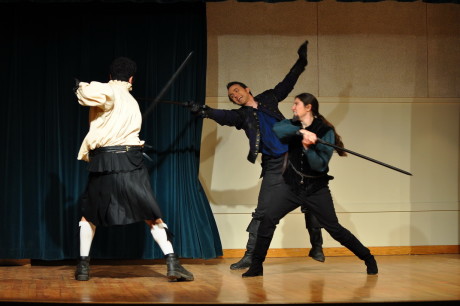
Sarah: I used to worry that the audience wouldn’t accept me as a male character if there were actual men onstage with me because I’m so small. But honestly? It’s all about mannerisms. You have to monitor your voice, and there are certain gestures or ways of carrying oneself that scan as more feminine that you might have to phase out, but I feel like that all fits under the umbrella of character-building.
Stephanie: Never in my wildest imaginings did I think I would get to play King Henry IV! I don’t feel like I exude middle-aged monarch, so when I got the call, I was surprised and thrilled. Little changes, like switching my gestures and adjusting the way that I sit, have been quite helpful in bridging the behavior gap between my 20-something self and this not quite 40-year old father.
Jay: I’ve been wanting to work with The Britches and Hose Shakespeare Company for a while now. One reason is I’ve gotten to know several of the folks involved with this fun and up-and-coming troupe through The Maryland Renaissance Festival, Vpstart Crow and other theatre companies in the area, and I love working with them. The other main reason is I really admire their mission to produce gender-blind and innovative productions of public domain works, including Shakespeare. I’m sure there are significant challenges for women to play men, but the ladies in our cast do a fantastic job and make it look easy!
What’s next for you on the stage?
Dave: Nothing at the moment, although I will likely be auditioning for B&H again. With any luck, I might also be acting in, directing or writing a piece for their upcoming Original Works showcase.
Sarah: Julius Caesar again… sort of. My after-school drama class is performing a one-act version that I wrote for them this spring. I’ll hopefully get to rejoin B&H this summer!
Stephanie: I am thrilled to announce that I will be directing Romeo and Juliet with B&H, scheduled to open July 15th through the 17th! Come out and audition – it’s going to be such a great time!
Jay: I don’t have anything lined up yet for the stage after Henry IV, Part 1, but I will be shooting Season 2 of the web series Shotgun Mythos this spring, which will be broadcast online sometime this fall. I’ll hopefully be doing some more improv later this year as well. As for the stage, we’ll see where the theatre gods guide me! I definitely hope to do another show with Britches and Hose sometime in the near future.
Henry IV, Part 1 plays from January 29-31, 2016. Performances on January 29th and January 30th will take place at 8:00 PM at Green Acres Hall – 4401 Sideburn Road, in Fairfax, VA.. The performance on January 31, 2016 will take place at 4:00 PM at our originally scheduled venue, Green Hedges School – 415 Windover Avenue, in Vienna, VA. Tickets are $10 at the door.


